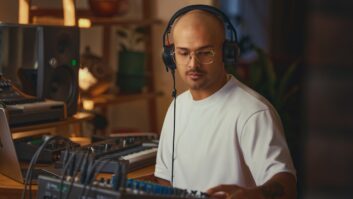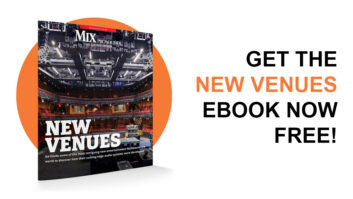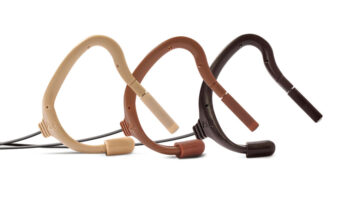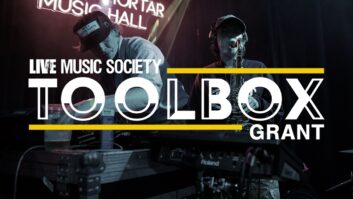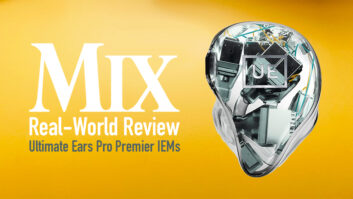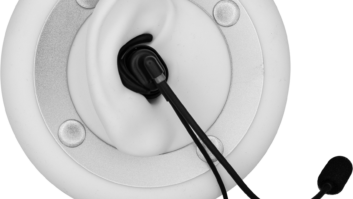City Council member Jacob Frey proposed the ordinance.
The Minneapolis music scene may be best known for giving the world Prince, The Replacements and Semisonic, but it may soon become the incubator for something far bigger. City Council member Jacob Frey is sponsoring an ordinance that would require all venues with a liquor license to provide free earplugs to patrons—and if the ordinance passes in April, its backers have dreams of scaling it nationally and potentially around the world.

If passed, the ordinance would affect roughly 200 bars, restaurants and sports and music venues in the city, all of which would be required to provide single-use earplugs with a Noise Reduction Rating of at least 30 dB. It will be the subject of a public hearing on April 1 and is then scheduled for a vote before the City Council on April 29.
In an effort to ensure compliance, venues would not have to bear the cost of providing ear plugs. Instead, the ordinance has gained the support of 3M, which is a major manufacturer of occupational hearing protection, and hearing aid manufacturer Miracle Ear, both of which are headquartered in the region. Together, the companies have signed on to provide ear plugs free to every venue under the ordinance.
As currently drafted, the ordinance notes that the requirement will not apply unless the city “has identified a source or supplier of such hearing protection devices that is capable of providing sufficient devices free of charge to all such establishments. The license official may develop reasonable rules regarding required signage or notification to patrons regarding the devices and their availability.”
The ordinance was the brainstorm of a local fashion label. “We were contacted by a company called Locally Grown, Globally Known and they had some ordinance language that they wanted us to take a look at,” said Heidi Ritchie, an aide for Frey. Locally Grown’s owner, Brian Felsen, first approached the former mayor and City Council with the idea eight months ago. “He approached us basically right away when Jacob took office in January, but he had been speaking with some other council members as well,” said Ritchie.
“It’s more of an inspirational ordinance than a regulatory one,” said Felsen. “There’s been some different items brought up from different establishments and the public, because they didn’t fully understand what the ordinance was and how it works. The city’s not going to go into clubs and shut the place down if people aren’t wearing them; it’s simply hearing protection has to be there to take for free if you need it. It’s compliance that the venues have to have the dispensers and hearing protection available at all times. If club owners don’t have inventory up or accessible to the public, there can be some warnings, so it is an ordinance that they will have to follow, but only to the extent of having the dispensers fully stocked.”
Felson says the proposal has generally been well-received: “The city has really embraced it—some of the council members are affected by noise-induced hearing loss through their own reasons, so they got it when I first brought it up to them and it has become a bigger initiative as it’s progressed and gained momentum.”
Similarly, at Frey’s office, Ritchie noted that enthusiasm for the ordinance is building among the city’s live venues. “We’ve gotten quite a bit of people who’ve said, ‘Thank you, it’s a great idea,’” she said. “A lot of them are in the music industry or suffer from noise-induced hearing loss, so the businesses have been fine with it thus far.”
The key to that acquiescence, however, is that venues won’t have to pay for the hearing protection, due to the corporations recruited as partners. “[3M and Miracle Ear] agreed to join forces with me and help us with supplying some of the products,” said Felsen, who damaged his own hearing as a teen involved in competition car audio and has since become an advocate for preventing noise-induced hearing loss. “When we joined forces, it made the statement that they want to be known as world-leaders in hearing conservation. Alone, we can only do so much, but together, we’re going to change the world. It starts here at home and we’re working with some exciting companies to scale this to a national and international level.”
“Hearing loss is attributed to a lot of health issues outside of not being able to hear that are very significant, especially when they’re left untreated,” he added. “We hope to scale this ordinance on a national level once it goes through here in Minneapolis, because it’s a way for us to not only get hearing protection into people’s hands, but also start the conversation about how it is a health issue that most people aren’t really aware of.”
Felsen’s ultimate goal is to change how hearing protection is perceived among today’s youth: “We really want to make hearing protection cool and fashionable,” he mused. “It’s like sunglasses—if you take away the brands, styles and colors, it’s a tool to protect your eyes from UV rays of the sun. Sunglasses are a vanity item—and right now, ear plugs are not a vanity item. Hopefully the people who go to the facilities that have these dispensers will not only take the hearing protection but also encourage the other people they know to take it as well.”
See our blog to read the full ordinance and share your thoughts on this news story!
